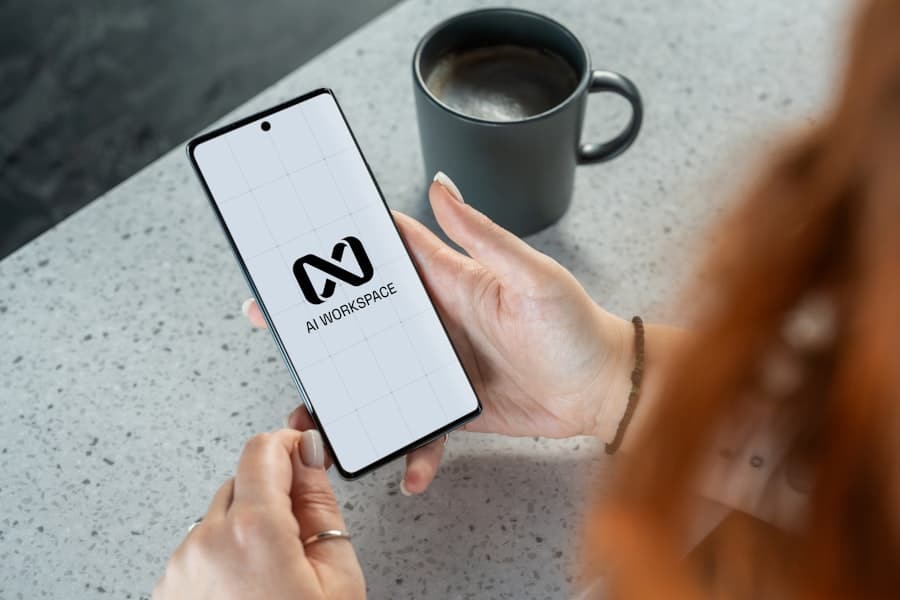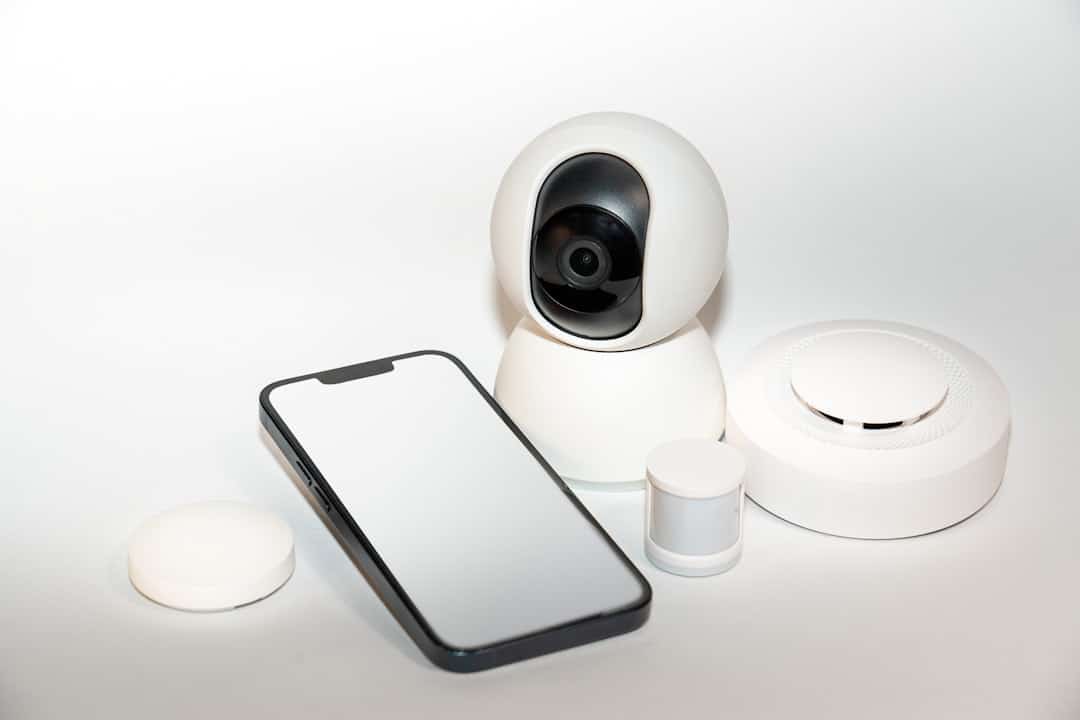In recent years, artificial intelligence (AI) chatbots have surged in popularity, becoming an integral part of our daily lives. Initially, these digital assistants were primarily confined to customer service roles, but their capabilities have expanded dramatically. Today, they can be found in various applications, from personal finance management to health monitoring, and even in social media interactions.
The proliferation of smartphones and the increasing reliance on digital communication have paved the way for chatbots to become ubiquitous. As technology continues to advance, the sophistication of these AI systems has improved, allowing them to engage in more natural and meaningful conversations with users. The rise of AI chatbots can also be attributed to the growing demand for instant communication and support.
In a world where time is of the essence, consumers expect immediate responses to their inquiries. Businesses have recognized this need and have begun to implement chatbots to enhance customer engagement and streamline operations. The COVID-19 pandemic further accelerated this trend, as remote work and online interactions became the norm.
As people sought efficient ways to communicate and access information, chatbots emerged as a practical solution, providing users with quick answers and assistance without the need for human intervention.
Key Takeaways
- AI chatbots are increasingly integrated into daily life, enhancing user interaction with technology.
- They serve as personal assistants, offering personalized support and streamlining routine tasks.
- The evolution of AI chatbots has led to more tailored and efficient assistance for users.
- AI chatbots significantly boost efficiency and productivity across various activities.
- They are transforming customer service by providing faster, more responsive support.
How AI Chatbots Are Changing the Way We Interact with Technology
AI chatbots are fundamentally altering our interactions with technology by introducing a more conversational and intuitive interface. Traditionally, users navigated through complex menus and interfaces to access information or complete tasks. However, with the advent of chatbots, users can now engage in dialogue with machines, making technology feel more accessible and user-friendly.
This shift has democratized technology, allowing individuals who may not be tech-savvy to interact with digital systems effortlessly. Moreover, chatbots are enhancing the personalization of user experiences. By leveraging machine learning algorithms and natural language processing (NLP), these AI systems can analyze user behavior and preferences to tailor responses accordingly.
For instance, a chatbot integrated into a shopping app can remember past purchases and suggest products based on individual tastes. This level of personalization not only improves user satisfaction but also fosters a sense of connection between the user and the technology they are engaging with. As a result, interactions with technology are becoming more fluid and less transactional, paving the way for deeper engagement.
The Benefits of Using AI Chatbots as Personal Assistants

The benefits of utilizing AI chatbots as personal assistants are manifold, particularly in terms of convenience and efficiency. One of the most significant advantages is their ability to operate 24/7 without fatigue. Unlike human assistants who require breaks and downtime, chatbots can provide continuous support, ensuring that users have access to assistance whenever they need it.
This constant availability is particularly valuable for individuals juggling multiple responsibilities or those who may require help outside of traditional business hours. Additionally, AI chatbots can handle a wide range of tasks simultaneously, which enhances productivity. For example, a chatbot integrated into a calendar application can schedule appointments, send reminders, and even reschedule meetings based on user preferences.
This capability allows users to focus on more critical tasks while delegating routine activities to their digital assistants. Furthermore, chatbots can learn from user interactions over time, becoming increasingly adept at anticipating needs and providing proactive assistance. This evolution not only streamlines daily routines but also empowers users to manage their time more effectively.
The Role of AI Chatbots in Streamlining Daily Tasks and Activities
AI chatbots play a pivotal role in streamlining daily tasks and activities by automating repetitive processes that would otherwise consume valuable time. For instance, in the realm of personal finance, chatbots can assist users in tracking expenses, setting budgets, and even providing insights into spending habits. By automating these financial tasks, users can gain a clearer understanding of their financial health without the burden of manual tracking.
In addition to financial management, chatbots are increasingly being utilized in home automation systems. Smart home devices equipped with chatbot functionality allow users to control various aspects of their living environment through simple voice commands or text interactions. For example, a user can instruct their chatbot to adjust the thermostat, turn on lights, or even order groceries—all through conversational exchanges.
This seamless integration of chatbots into daily life not only enhances convenience but also fosters a more connected living experience.
The Evolution of AI Chatbots in Providing Personalized Assistance
The evolution of AI chatbots has been marked by significant advancements in their ability to provide personalized assistance. Early iterations of chatbots often relied on scripted responses and limited functionality, which could lead to frustrating user experiences when queries fell outside predefined parameters. However, recent developments in machine learning and NLP have enabled chatbots to understand context and nuance better, allowing for more dynamic interactions.
For example, modern chatbots can analyze user sentiment through language cues, adjusting their responses based on the emotional tone of the conversation. This capability is particularly beneficial in customer service scenarios where empathy plays a crucial role in resolving issues. A chatbot that recognizes frustration in a user’s tone can respond with greater sensitivity, offering solutions that address the user’s concerns more effectively.
The Future of AI Chatbots as Essential Personal Assistants

Looking ahead, the future of AI chatbots as essential personal assistants appears promising. As technology continues to advance at an unprecedented pace, we can expect chatbots to become even more integrated into our daily lives. Innovations such as voice recognition technology and enhanced machine learning algorithms will likely enable chatbots to understand complex queries and provide more accurate responses.
Moreover, the potential for cross-platform integration is vast. Imagine a scenario where your chatbot seamlessly transitions between different applications—scheduling appointments in your calendar app while simultaneously managing your emails and providing reminders for upcoming tasks. This level of integration would create a cohesive digital ecosystem where users can interact with multiple services through a single conversational interface.
As businesses recognize the value of such capabilities, we may see an increase in investment toward developing more sophisticated chatbot technologies that cater to diverse user needs.
The Impact of AI Chatbots on Efficiency and Productivity
The impact of AI chatbots on efficiency and productivity cannot be overstated. By automating routine tasks and providing instant access to information, chatbots free up valuable time for users to focus on higher-level responsibilities that require critical thinking and creativity. In professional settings, this translates into enhanced team collaboration and improved project outcomes as employees can allocate their efforts toward strategic initiatives rather than mundane administrative duties.
Furthermore, businesses that implement AI chatbots often experience significant cost savings due to reduced labor expenses associated with customer service roles. By handling common inquiries through automated systems, companies can allocate human resources more effectively while maintaining high levels of customer satisfaction. This shift not only boosts operational efficiency but also allows organizations to scale their services without proportionately increasing costs.
How AI Chatbots Are Revolutionizing Customer Service and Support
AI chatbots are revolutionizing customer service and support by transforming how businesses interact with their customers. Traditionally characterized by long wait times and limited availability, customer service has undergone a radical change with the introduction of chatbots capable of providing immediate assistance around the clock. Customers no longer need to navigate through lengthy phone menus or wait for email responses; instead, they can engage with a chatbot that offers instant answers to their queries.
Moreover, the ability of chatbots to handle multiple inquiries simultaneously means that businesses can serve a larger customer base without compromising service quality. For instance, during peak shopping seasons or promotional events, chatbots can manage thousands of customer interactions concurrently, ensuring that no one is left waiting for assistance. This scalability not only enhances customer satisfaction but also positions businesses as responsive and attentive to consumer needs.
In addition to immediate support, AI chatbots are also capable of gathering valuable data on customer preferences and behaviors. By analyzing interactions over time, businesses can gain insights into common pain points or frequently asked questions, allowing them to refine their products or services accordingly. This data-driven approach enables companies to stay ahead of market trends while fostering stronger relationships with their customers through personalized experiences.
As AI technology continues to evolve, the role of chatbots in our lives will undoubtedly expand further. Their ability to adapt and learn from user interactions positions them as essential tools for enhancing efficiency across various domains—from personal assistance to customer service—ultimately reshaping how we engage with technology on a daily basis.
As AI chatbots continue to evolve into everyday personal assistants, their integration into various devices enhances user experience and productivity. For instance, choosing the right technology to complement these AI tools is crucial, especially for students who may benefit from portable devices. To learn more about selecting the best tablet for students, you can read this informative article: How to Choose a Tablet for Students.
FAQs
What are AI chatbots?
AI chatbots are software programs that use artificial intelligence to simulate human-like conversations with users. They can understand and respond to text or voice inputs, providing assistance, information, or performing tasks.
Why are AI chatbots becoming popular as personal assistants?
AI chatbots are becoming popular because they offer 24/7 availability, quick responses, and the ability to handle multiple tasks simultaneously. They can help manage schedules, answer questions, provide reminders, and integrate with other digital services, making daily life more efficient.
How do AI chatbots understand user requests?
AI chatbots use natural language processing (NLP) to interpret and understand user inputs. This technology enables them to analyze the context, intent, and meaning behind the words to provide accurate and relevant responses.
Can AI chatbots learn and improve over time?
Yes, many AI chatbots use machine learning algorithms that allow them to learn from interactions and improve their responses over time. This continuous learning helps them become more personalized and effective in assisting users.
Are AI chatbots secure for personal use?
AI chatbots typically incorporate security measures such as data encryption and privacy protocols to protect user information. However, users should be cautious about sharing sensitive data and use chatbots from reputable providers.
What types of tasks can AI chatbots perform as personal assistants?
AI chatbots can perform a variety of tasks including setting reminders, managing calendars, answering questions, providing weather updates, sending messages, making reservations, and controlling smart home devices.
Do AI chatbots require internet connectivity to function?
Most AI chatbots require internet connectivity to access cloud-based AI services and retrieve up-to-date information. Some offline capabilities may exist but are generally limited compared to online functionality.
Are AI chatbots replacing human personal assistants?
AI chatbots are designed to complement human personal assistants by handling routine and repetitive tasks. While they increase efficiency, they do not fully replace the nuanced judgment and interpersonal skills of human assistants.
How can I start using an AI chatbot as a personal assistant?
To start using an AI chatbot, you can download apps or use built-in assistants on smartphones, smart speakers, or computers. Popular examples include Siri, Google Assistant, Alexa, and specialized chatbot apps available on various platforms.

